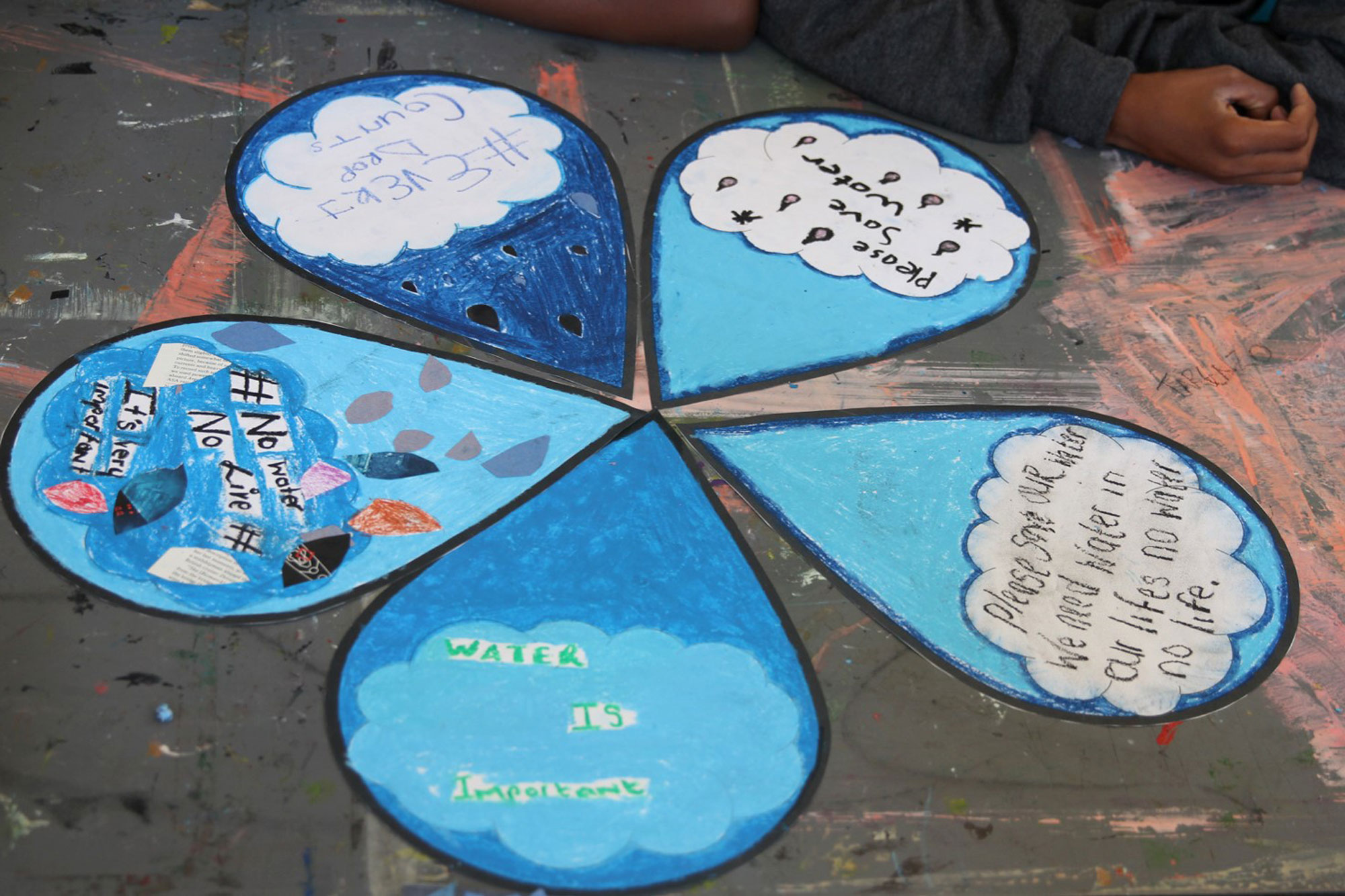Dr Amber Abrams, who graduated from Kent in July, is currently undertaking a postdoctoral fellowship at the Future Water Institute (FWI) at the University of Cape Town until 2020. With a practical outlook, the FWI promotes interdisciplinary research towards “management of water that is technically sound, socio-culturally acceptable and sustainable, and that maximises public understanding of water scarcity” (Future Water Institute, n.d.).
Working in this role since July 2018, Amber’s current work draws from her PhD research that, among many topics, explored water access. She currently focuses on water users and uses in the Table Mountain National Park area, developing a water museum and online interactive hub for water-related topics, exploring resource recovery from waste-water and exploring health vulnerability in the context of drought. As Postdoctoral Fellow at the FWI, Dr Abrams has been successful in a number of funding calls, and has thus taken a lead role in developing research projects which draw on innovative social research methods to generate public engagement and data vital to the FWI’s vision. As part of this postdoc, Dr Abrams is also involved in the development of courses, lecturing and the supervision of postgraduate student projects.
In concert with her dedicated engagement with this new and developing trans-disciplinary research unit at the University of Cape Town, and building on those same interests, Amber has also landed a DANIDA (Danish International Development Agency) postdoctoral research exchange fellowship at the University of Aarhus. The Heritage and the Anthropocene (HATA) project was conceived largely in response to Cape Town’s water crisis. Pressing issues that HATA is researching include: people’s relationships to place and history when ‘the environment’ no longer reliably provides the most basic needs of life; and the role(s) social science might play in helping to understand and ameliorate the ongoing water crisis in Cape Town.
While ‘day zero’ may (for now) have been averted, daunting challenges remain to be tackled. Due to clear synergies with HATA’s research interests and Dr Abrams’ work at FWI, Amber was invited to visit Aarhus University for a period of three months with a view toward longer-term institutional collaboration. During this time, Dr Abrams’ research will focus on developing collaborations with Aarhus researchers and PhD candidates interested in using participatory, arts-based research methods to facilitate:
- the translation of technical scientific terminology into forms that more diverse publics can understand.
- the articulation of ideas and bodily experiences of and relationships with water.
These methodologies will be used alongside workshop fora, to raise awareness of clean water as a precious resource, and to engage people’s ongoing concerns around pesticide use and its impacts on drinking-water supplies in Denmark. This collaboration is fostering an ongoing research collaboration between South African and Danish institutions, and aligns particularly well with DANIDA’s efforts to engage with themes of water management in South Africa – specifically concerns with social dimensions, behavioural challenges and constitutional rights to water and sanitation.
Dr Abrams is grateful for the foundation that she received at Kent under the supervision of Dr Miguel Alexiades and Dr Daniela Peluso, as well as for DANIDA’s support and for her colleagues and collaborators at Aarhus University and FWI.

